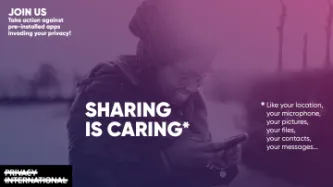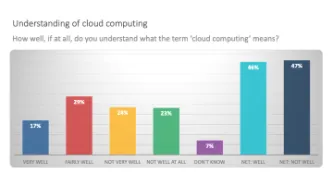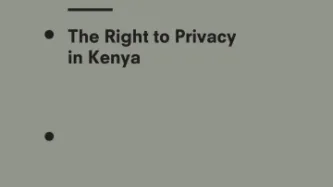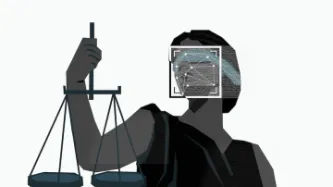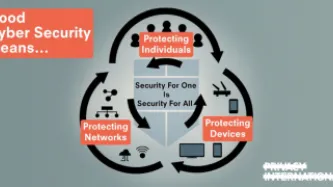Search
Content type: Case Study
Discriminatory laws on the basis of sexual orientation across the globe exist in stark opposition to the principle that the law should be the same for each and every one of us. We are all entitled to the same protections against any discrimination. Equality before the law dictates that there must be a reasonable justification to regulate any aspect of a person’s life.
Laws discriminating on the basis of sexual orientation interfere with our private lives and development. There can be no…
Content type: Long Read
We are excited to spotlight our Reproductive Rights and Privacy Project!
The Project is focused on researching and exposing organisations that collect and exploit the information of those seeking to exercise their reproductive rights. Working together with PI partners, other international grassroots organisations and NGOs, PI is researching and advocating against this data exploitation.
So, what are reproductive rights?
Sexual and reproductive rights, which are contained within Economic,…
Content type: Case Study
Every one of us has an expectation to be legally protected in the same way, to have access to the same human rights, and to be able to defend those rights in court.
However, for trans and non-binary people, this has not always been the case – and in many places around the world it still isn’t the case. The lack of legal recognition for their gender has had significant consequences.
If the law does not recognise you as the person that you are and treats you as someone you are not then you…
Content type: News & Analysis
Today Advocate General (AG) Campos Sánchez-Bordona of the Court of Justice of the European Union (CJEU), issued his opinions (C-623/17, C-511/18 and C-512/18 and C-520/18) on how he believes the Court should rule on vital questions relating to the conditions under which security and intelligence agencies in the UK, France and Belgium could have access to communications data retained by telecommunications providers.
The AG addressed two major questions:
(1) When states seek to impose…
Content type: News & Analysis
Maddie Stone, formally a Senior reverse engineer and tech lead on the Android security team, shockingly revealed a number of examples of how pre-installed apps on Android devices can undermine users privacy and security in her BlackHat USA talk in August 2019. The video of the talk only recently became available to the public in late December 2019.
The apps in question come preloaded on a device when it is purchased and often can't be removed. Stone reveals a litany of abuses carried out by…
Content type: Advocacy
Puede encontrar la carta a continuación. Agregue su voz a esta campaña firmando nuestra petición si cree que es hora de que Google deje de permitir la explotación.
Nota: Esta carta también está disponible en francés e inglés.
Estimado Sr. Pichai,
Nosotros, los firmantes, estamos de acuerdo con usted: la privacidad no puede ser un lujo reservado para las personas que tienen la capacidad de pagar por ella.
Sin embargo, los socios de Android Partner –que utilizan la marca y la imagen de…
Content type: Advocacy
You can find the letter below. Add your voice to this campaign by signing our petition if you believe that its time Google stopped enabling exploitation.
Note: This letter is also available in French and Spanish
Dear Mr. Pichai,
We, the undersigned, agree with you: privacy cannot be a luxury offered only to those people who can afford it.
And yet, Android Partners - who use the Android trademark and branding - are manufacturing devices that contain pre-installed apps that cannot be deleted…
Content type: Advocacy
Vous pouvez trouver la lettre ci-dessous. Ajoutez votre voix à cette campagne en signant notre pétition si vous pensez qu'il est temps que Google cesse d'activer l'exploitation.
Ce contenu est également disponible en anglais et en espagnol.
Cher M. Pichai,
Nous, les organisations signataires, sommes d’accord avec vous :
la vie privée n’est pas un luxe, offert seulement à ceux qui en ont les moyens.
Pourtant, les « Android Partners » – qui utilisent la marque déposée…
Content type: News & Analysis
Send a Freedom of Information Request to your local police for to see if they are using cloud extraction here.On 12 December 2018 a member of Lancashire Police Department UK told viewers of a Cellebrite webinar that they were using Cellebrite's Cloud Analyser to obtain cloud based 'evidence'. In response to a Freedom of Information request Hampshire Constabulary told Privacy International they were using Cellebrite Cloud Analyser. They are not alone. In Cellebrite's…
Content type: Long Read
Mobile phones remain the most frequently used and most important digital source for law enforcement investigations. Yet it is not just what is physically stored on the phone that law enforcement are after, but what can be accessed from it, primarily data stored in the Cloud.
Cellebrite, a prominent vendor of surveillance technology used to extract data from mobile phones, notes in its Annual Trend Survey that in approximately half of all investigations, cloud data ‘appears’ and that…
Content type: Press release
A large number of apps on smart phones store data in the cloud. Law enforcement can access these vast troves of data from devices and from popular apps with the push of a button using cloud extraction technology.
Mobile phones remain the most frequently used and most important digital source for law enforcement investigations. Yet it is not just what is physically stored on the phone that law enforcement are after, but what can be accessed from it, primarily data stored in the Cloud.…
Content type: News & Analysis
Content type: Case Study
Slavery, servitude, and forced labour are absolutely forbidden today, as is anything that seeks to undermine or limit that restriction. The horrific reality, however, is that modern slavery remains a significant global issue.
Human trafficking is one form of modern slavery. It involves the recruitment, harbouring or transporting of people into a situation of exploitation through the use of violence, deception or coercion and forcing them to work against their will.
Human traffickers do…
Content type: Case Study
On 3 December 2015, four masked men in plainclothes arrested Isnina Musa Sheikh in broad daylight (at around 1 p.m.) as she served customers at her food kiosk in Mandera town, in the North East of Kenya, Human Rights Watch reported. The men didn’t identify themselves but they were carrying pistols and M16 assault rifles, commonly used by Kenyan defence forces and the cars that took her away had their insignia on the doors. Isnina’s body was discovered three days later in a shallow grave about…
Content type: Case Study
The prohibition against torture is absolute. There are no exceptional circumstances whatsoever which can be used to justify torture.
And yet, torture is still being carried out by state officials around the world, driven by states’ ability to surveil dissidents, and intercept their communications.
In 2007, French technology firm Amesys (a subsidiary of Bull) supplied sophisticated communications surveillance systems to the Libyan intelligence services. The systems allegedly permitted the…
Content type: Long Read
Over the coming months, PI is going to start to look a bit different. We will have a new logo and a whole new visual identity.
And in turn, our new visual identity will only be one step in a wider process of PI reconnecting with our core mission and communicating it more effectively to you, following on from extensive consultation with our staff, board, our supporters and our international partners.
Our current black ‘redacted’ Privacy International logo, and the austere Cold War era dossier…
Content type: News & Analysis
Updated January 18th 2021
The Government of Myanmar is pushing ahead with plans to require anyone buying a mobile SIM card to be fingerprinted and hand over their ID cards, according to procurement documents circulated to prospective bidders.
The plans are a serious threat to privacy in a country lacking any data protection or surveillance laws and where minorities are systematically persecuted, and must be scrapped.
According to technical requirements developed by Myanmar’s Post and…
Content type: Advocacy
This stakeholder report is a submission by Privacy International (PI), the National Coalition of Human Rights Defenders Kenya (NCHRD-K), The Kenya Legal & Ethical Issues Network on HIV and AIDS (KELIN), and Paradigm Initiative.
PI, NCHRD-K, KELIN, and Paradigm Initiative wish to bring their concerns about the protection and promotion of the right to privacy, and other rights and freedoms that privacy supports, for consideration in Kenya’s upcoming review at the 35th session of the Working…
Content type: Long Read
Following a series of FOI requests from Privacy International and other organisations, the Department of Health and Social Care has now released its contract with Amazon, regarding the use of NHS content by Alexa, Amazon’s virtual assistant. The content of the contract is to a big extent redacted, and we contest the Department of Health’s take on the notion of public interest.
Remember when in July this year the UK government announced a partnership with Amazon so that people would now…
Content type: News & Analysis
This creates a restraint on all people who merely seek to do as people everywhere do: to communicate freely.
This is a particularly worrying development as it builds an unreliable, pervasive, and unnecessary technology on top of an unnecessary and exclusionary SIM card registration policy. Forcing people to register to use communication technology eradicates the potential for anonymity of communications, enables pervasive tracking and communications surveillance.
Building facial recognition…
Content type: News & Analysis
On 24 October 2019, the Swedish government submitted a new draft proposal to give its law enforcement broad hacking powers. On 18 November 2019, the Legal Council (“Lagråd”), an advisory body assessing the constitutionality of laws, approved the draft proposal.
Privacy International believes that even where governments conduct hacking in connection with legitimate activities, such as gathering evidence in a criminal investigation, they may struggle to demonstrate that hacking as…
Content type: News & Analysis
In the last few months strong concerns have been raised in the UK about how police use of mobile phone extraction dissuades rape survivors from handing over their devices: according to a Cabinet Office report leaked to the Guardian, almost half of rape victims are dropping out of investigations even when a suspect has been identified. The length of time it takes to conduct extractions (with victims paying bills whilst the phone is with the police) and the volume of data obtained by the…
Content type: News & Analysis
*Photo by Michelle Ding on Unsplash
Pat Finucane was killed in Belfast in 1989. As he and his family ate Sunday dinner, loyalist paramilitaries broke in and shot Pat, a high profile solicitor, in front of his wife and children.
The Report of the Patrick Finucane Review in 2012 expressed “significant doubt as to whether Patrick Finucane would have been murdered by the UDA [Ulster Defence Association] had it not been for the different strands of involvement by the…
Content type: Long Read
Miguel Morachimo, Executive Director of Hiperderecho. Hiperderecho is a non-profit Peruvian organisation dedicated to facilitating public understanding and promoting respect for rights and freedoms in digital environments.The original version of this article was published in Spanish on Hiperderecho's website.Where does our feeling of insecurity come from? As we walk around our cities, we are being observed by security cameras most of the time. Our daily movement, call logs, and internet…
Content type: Long Read
*Photo by Kristina Flour on Unsplash
The British government needs to provide assurances that MI5’s secret policy does not authorise people to commit serious human rights violations or cover up of such crimes
Privacy International, along Reprieve, the Committee on the Administration of Justice, and the Pat Finucane Centre, is challenging the secret policy of MI5 to authorise or enable its so called “agents” (not MI5 officials) to commit crimes here in the UK.
So far we have discovered…
Content type: Advocacy
On November 1, 2019, we submitted evidence to an inquiry carried out by the Scottish Parliament into the use of Facial Recognition Technology (FRT) for policing purposes.
In our submissions, we noted that the rapid advances in the field of artificial intelligence and machine learning, and the deployment of new technologies that seek to analyse, identify, profile and predict, by police, have and will continue to have a seismic impact on the way society is policed.
The implications come not…
Content type: Long Read
Sitting on the ground inside an unadorned courtyard in Koira Tegui, one of Niamey’s most popular districts, Halimatou Hamadou shows a copy of what, she’s been told, is a certificate of birth.
The 33 year old woman, who’s unable to read and write, received it days earlier during a crowded public ceremony at a nearby primary school.
“It’s my first document ever,'' she says, with surprise.
Thanks to the paper, she’ll be able to take part in a crucial passage for the future of Niger: the…
Content type: Long Read
The pressing need to fix our cybersecurity (mis)understandings
Despite all the efforts made so far by different, cybersecurity remains a disputed concept. Some states are still approving cybersecurity laws as an excuse to increase their surveillance powers. Despite cybersecurity and cybercrime being different concepts, the confusion between them and the broad application of criminal statutes is still leading to the criminalise legitimate behaviour.
All of this represents a sizable challenge…
Content type: News & Analysis
Picture: CC: BY (Kirill Sharkovski)-SA
This article was written by Jamila Venturini from Derechos Digitales. The original version (in Spanish) is available here.
How implementing social protection programmes that condition access to basic services to state and private surveillance exacerbate the prevailing inequality on the continent.
While the gap between rich and poor is increasing in the world, Latin America remains the most unequal region of the world. According to the Economic…
Content type: Press release
Tomorrow, the UN Special Rapporteur on extreme poverty and human rights will present his annual report to the UN General Assembly in New York on digital technology, social protection and human rights. On the same day, Privacy International will be launching its own series on surveillance in the provision of social services.
The Special Rapporteur warns that specific areas need to be addressed to "avoid stumbling zombie-like into a digital welfare dystopia" and that "values such as…




